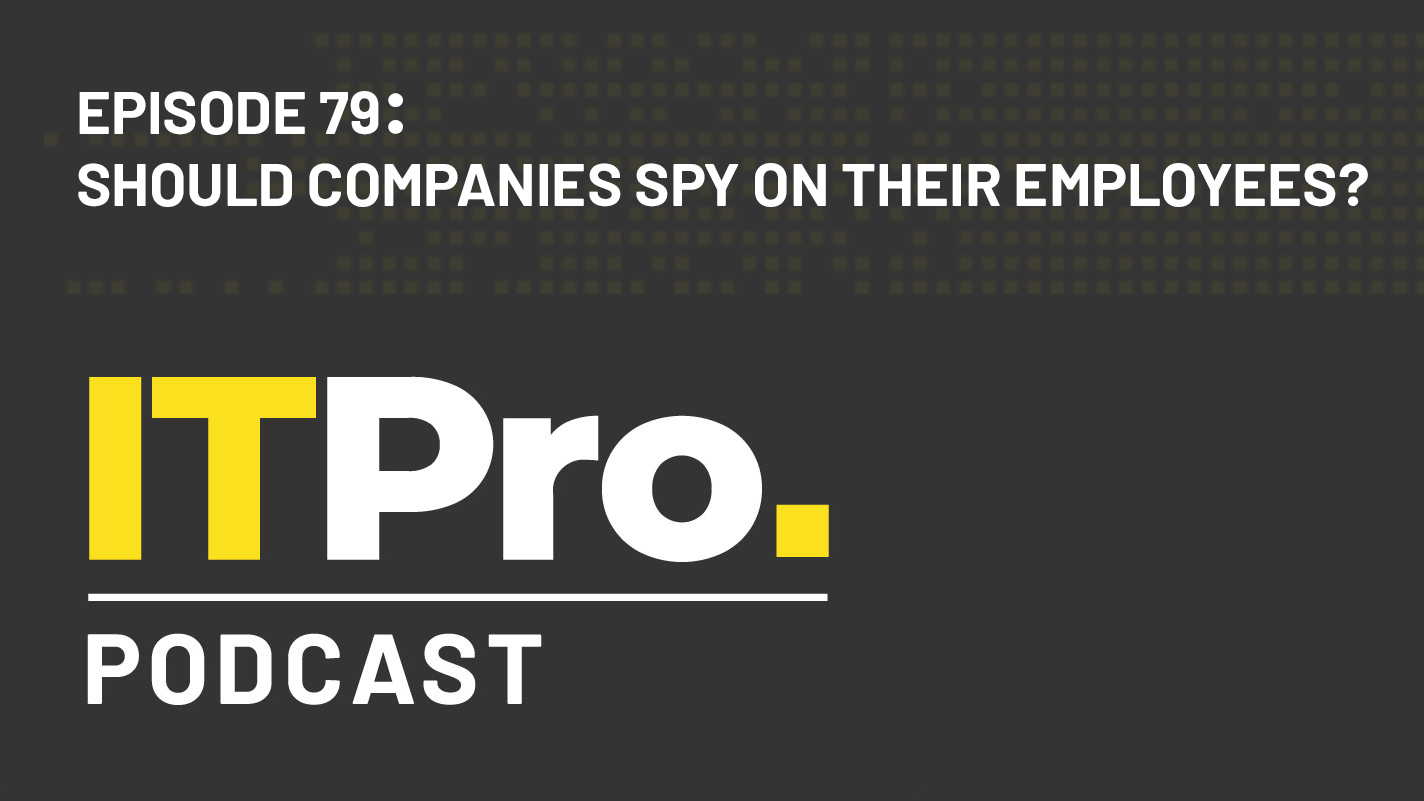Wearable tech & the risk it poses to enterprise data
Davey Winder explains why IT directors need to wise-up about including wearables in their organisation's BYOD security policies


Bring Your Own Device (BYOD) security problems have been overblown during the last few years. Sure, the increased uptake of cloud services and the pressure put on both budgets and staff expectations has led to more off grid devices appearing in the workplace. However, the use of them doesn't have to be a security nightmare; it just means the enterprise has to adjust its security posture accordingly to accommodate the risk.
The same goes for the 'Shadow IT' threat. None of which stops security vendor after security vendor from lining up to tell us all these things are a clear and present danger to enterprise data.
The latest of these "threats" to enterprise data is Wear Your Own Device (WYOD). According to new research from Accellion, published today, enterprises are simply not ready to tackle the security risks that come with "the dawn of the age of WYOD".
Aimed squarely at the UK enterprise, the research questioned decision makers from 100 organisations with more than 1,000 employees, and Accellion discovered that 77 per cent of them didn't include wearable tech as part of their broader mobile security strategic planning. What's more, 53 per cent said they hadn't even considered the possible impact of it on their security posture, despite 81 per cent also accepting any increase in wearable tech could be a security risk.
My main concern here is the figures simply don't make sense and I suggest the 'decision makers' who responded are immediately relieved of having to make any further decisions about enterprise data security as they are clearly not up to the task. I mean, seriously, half of them say they haven't considered the wearable threat yet more than 80 per cent accept wearables could be a security risk.
Did they not understand the question? If that were not enough to reinforce my knee-jerk distrust of such surveys, after all the responses are only as valid as the questions being asked. Another statistic emerging from this research is that 41 per cent of UK enterprises "currently have a BYOD policy in place that can be extended to cover wearables", which suggests that 59 per cent do not.
What the actual flip? More than half the BYOD policies out there, in these enterprises at least, are not fit for purpose because they do not cover own devices being brought into the workplace if they are strapped to a body part, apparently. Sorry, run that past me again, old chap?
Get the ITPro daily newsletter
Sign up today and you will receive a free copy of our Future Focus 2025 report - the leading guidance on AI, cybersecurity and other IT challenges as per 700+ senior executives
Accellion says the figures "demonstrate that the wearable device poses a great threat to UK business, and if IT teams don't act quickly we could see many more cyber attacks as a consequence" which isn't the conclusion I am drawing from the headline figures. What I'm getting is they demonstrate a number of enterprises either have a really crap understanding of what a BYOD policy should look like or no idea what a wearable device actually is. Or both.
Don't get me wrong, I fully understand the threat that wearables introduce into the enterprise data landscape. What I don't understand is how that threat differs fundamentally from anything else that falls under the umbrella of BYOD. The clue is in the D bit, and a smartwatch or Google Glass, or USB storage underpants for that matter are all devices. End of. Next...
Davey is a three-decade veteran technology journalist specialising in cybersecurity and privacy matters and has been a Contributing Editor at PC Pro magazine since the first issue was published in 1994. He's also a Senior Contributor at Forbes, and co-founder of the Forbes Straight Talking Cyber video project that won the ‘Most Educational Content’ category at the 2021 European Cybersecurity Blogger Awards.
Davey has also picked up many other awards over the years, including the Security Serious ‘Cyber Writer of the Year’ title in 2020. As well as being the only three-time winner of the BT Security Journalist of the Year award (2006, 2008, 2010) Davey was also named BT Technology Journalist of the Year in 1996 for a forward-looking feature in PC Pro Magazine called ‘Threats to the Internet.’ In 2011 he was honoured with the Enigma Award for a lifetime contribution to IT security journalism which, thankfully, didn’t end his ongoing contributions - or his life for that matter.
You can follow Davey on Twitter @happygeek, or email him at davey@happygeek.com.
-
 Bigger salaries, more burnout: Is the CISO role in crisis?
Bigger salaries, more burnout: Is the CISO role in crisis?In-depth CISOs are more stressed than ever before – but why is this and what can be done?
By Kate O'Flaherty Published
-
 Cheap cyber crime kits can be bought on the dark web for less than $25
Cheap cyber crime kits can be bought on the dark web for less than $25News Research from NordVPN shows phishing kits are now widely available on the dark web and via messaging apps like Telegram, and are often selling for less than $25.
By Emma Woollacott Published
-
 Rebooting your BYOD strategy
Rebooting your BYOD strategyIn-depth With hybrid working becoming the norm, there's a need for a device management overhaul. What does BYOD 2.0 look like?
By Kate O'Flaherty Published
-
 IT Pro Panel: Why BYOD is (sort of) here to stay
IT Pro Panel: Why BYOD is (sort of) here to stayIT Pro Panel CIOs explain why they aren’t going all-in on personal devices
By Adam Shepherd Published
-
 The IT Pro Podcast: Should companies spy on their employees?
The IT Pro Podcast: Should companies spy on their employees?IT Pro Podcast Where’s the line between security and surveillance?
By IT Pro Published
-
 Microsoft patents tech to combat employee stress
Microsoft patents tech to combat employee stressNews Based on biometric data, the patented technology computes an employee’s "anxiety score"
By Praharsha Anand Published
-
 What are employers' responsibilities when we use personal tech to work from home?
What are employers' responsibilities when we use personal tech to work from home?In-depth With many more months of lockdown ahead of us, and workers reluctant to return to the office full time, it's time to think about roles and responsibilities
By Sandra Vogel Published
-
 What is the 'personalisation of IT'?
What is the 'personalisation of IT'?In-depth With millions of people using personal devices for professional purposes while working from home, consumerisation has entered a new phase
By David Howell Published
-
 WhatsApp delays controversial privacy update for businesses
WhatsApp delays controversial privacy update for businessesNews Users were asked to share data with WhatsApp’s parent company Facebook in order to continue using the service
By Sabina Weston Published
-
 Lenovo ThinkPad L14 review: It’s not right but it’s okay
Lenovo ThinkPad L14 review: It’s not right but it’s okayReviews Pleasant enough for simple office tasks
By Sabina Weston Published